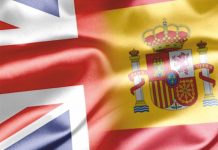 Most ex-patriates from the UK will be acquainted with the fact that if you are domiciled back home, any assets bequeathed to a wife or husband are tax free under the spouse exemption rule. However, many people are surprised to learn that the spouse exemption does not apply to any assets in Spain, including property.
Most ex-patriates from the UK will be acquainted with the fact that if you are domiciled back home, any assets bequeathed to a wife or husband are tax free under the spouse exemption rule. However, many people are surprised to learn that the spouse exemption does not apply to any assets in Spain, including property.
There are however definite advantages to being married from a Spanish inheritance tax point of view. The way inheritance tax is charged in Spain, differs completely from the UK. In the UK, it is the estate that is charged inheritance tax (at 40%) after having deducted exempt beneficiaries (spouse and charities), any allowances (such as business or agricultural property relief) and the nil rate band (tax free allowance, currently £300,000).
In Spain, the estate is divided up in accordance with the will or the rules of intestacy so that each beneficiary’s share can be calculated. The beneficiary is then personally responsible for the inheritance tax, which is calculated on the basis of their personal circumstances. The tax rules take into account the relationship between the deceased and the beneficiary, the residential status of both, the pre-existing wealth of the beneficiary and in some circumstances, their age. The tax is then calculated from a table published by the tax office and the autonomous regions. The regions in Spain have complete autonomy over the inheritance tax rules for residents of that region. Many regions have now abolished inheritance tax for residents. Non-resident beneficiaries have to declare and pay inheritance tax at the central office in Madrid.
For non-residents, the spouse receives an allowance of €15,956.87 after which inheritance tax is paid on everything received. This clearly is a very small allowance which would mean that a surviving (non-resident) spouse would normally be liable to pay inheritance tax. The same allowance is given to children over 21, younger children get a larger allowance and brothers and sisters about half that of a spouse. The tax is then charged on a sliding scale basis, basically the more you receive, the higher the percentage rate applied when calculating the tax. For example, the first €7993.46 is taxed at 7.65% whereas the tax rate for amounts received between €119,757.67 and €159,634.83 is 18.70%. The figures are quite obscure as they were originally based upon the peseta. The top tax rate, if you receive over €797,555.08 is 34%.
However, there is a further shock for non-married couples. If they wish to leave their assets to each other then the tax calculated from the tables is doubled ! Furthermore, there is an additional increase if the recipient has high pre-existing personal wealth in Spain which means a possible top rate of tax of 81.6% on everything received as there is no allowance for non-married partners.
So it is quite obvious that even for non-residents, there is a significant advantage in being married if you wish to leave everything to your partner. For residents, there can be other advantages depending upon which region you are resident in. In Andalucía for example, there are two inheritance tax allowances given to a resident spouse. The first is a reduction in value of the marital home for the purposes of the inheritance tax calculation. If the couple had lived in the house for two years or more together in the house then the value of the share of they house that the survivor receives is reduced by 99.99% for the purposes of inheritance tax. However, the maximum value for the reduction is €122,606.47 so even if the value of the share of the property received is higher, the maximum reduction is €122,594.20 for each qualifying beneficiary. This reduction also applies to children and parents of the deceased if they had lived in the house for two years or more. The big drawback to this allowance is that the law stipulates that the recipient of the allowance cannot sell the property for ten years. If they do, they must pay the extra tax plus interest. It is a big commitment for a recently bereaved person to undertake to stay in the home, particularly in a foreign country for such a long time with a high tax bill hanging over them if they want to leave.
The second allowance for a resident spouse is that if they receive an amount of no more than €125,000 then there is no tax to pay. If they receive even one euro over this amount then the full tax is paid as usual (it is not a nil rate band allowance as in the UK). This amount does not seem very high, however, it is also applied to resident children and parents of the deceased. So assuming the property was co-owned by the couple, only the half owned by the deceased would pass by inheritance on their death. If for example the will passed the deceased’s share of the property to his spouse and three children, and all were resident, then even for a property worth €600,000 with other assets belonging to the deceased such as bank accounts and cars worth, say €50,000, there would be no tax. This is because the estate would be worth €350,000 (half the property plus the other assets) and each beneficiary would receive €87,500, well under the limit for the allowance. The other stipulation is that each beneficiary cannot have pre-existing wealth of more than €400,000 so a spouse who co-owned a house worth more than €800,000 would not get the allowance regardless of the value of the share they receive.
If the property is not to be sold straight away, the value declared for inheritance tax purposes can be the fiscal value. This is roughly 2.5 times (depending upon where you live) the “valor catastral” which can be found on the rates (IBI) bill from the Town Hall. This is very often much lower than the perceived market value. However it must be borne in mind that if the property is later sold, capital gains tax will be charged at a rate of 18% on the difference between the value declared for the inheritance and the value for which the property is sold.
For co-habiting couples, there are ways to reduce the potential inheritance tax burden.
Get married – as can be seen above there are definite advantages to this especially for residents.
Reduce the equity in the property – buy with a mortgage or take out a mortgage or equity release scheme.
Change your will – to include other related beneficiaries such as children who will not be taxed as highly.
It is always advisable to make a Spanish will for your assets in Spain especially for non-married couples. A good lawyer can advise you on your tax position and how the dispositions in your will can mitigate inheritance tax.
Alex Radford is a Solicitor and Registered Foreign Lawyer at De Cotta McKenna y Santafé, a law firm specialising in dealing with all aspects of Spanish Law for English speaking clients, including TimeShare. Their Nerja offices are at:
Calle Diputación 6, 2A
29780 Nerja
Tel: 952 52 70 14
Fax: 952 52 34 28
or
Email: alexradford@decottalaw.net
Website: www.decottalaw.com





















